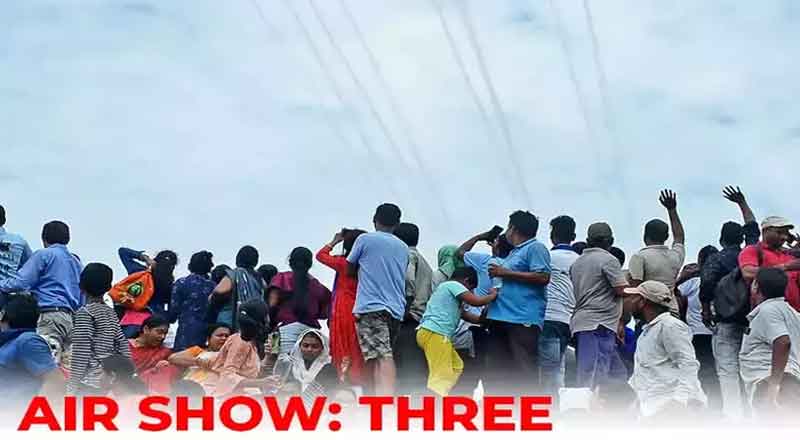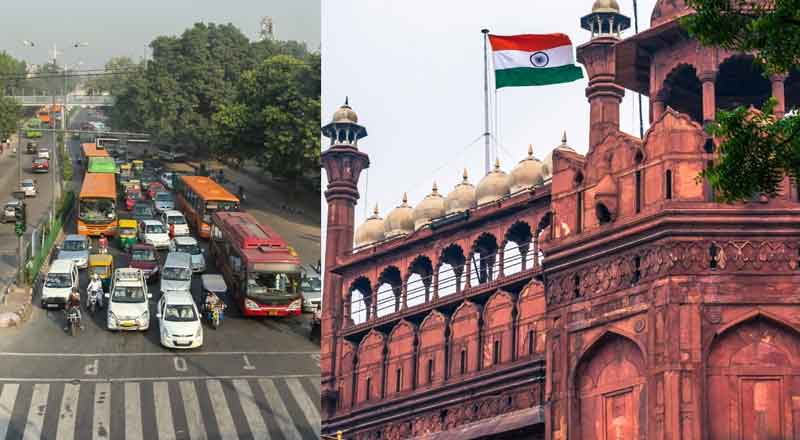In the face of the socio-cultural transformation that the present society is witnessing and the higher human aspirations that are overtaking every individual today, certain good things in life like animals, environment and all other forms of life are becoming the least important issues for us. Ms. Jasjit Purewal, Campaign owner of Indigree Angels Trust tells SPOI of how desperately she wants to change that notion and with the help of her NGO tries to save street dogs from the cruelty and indifference of urban life. An excerpt –
Tell us more about your organization. How did the idea of working for the upliftment of the street dogs come to you?
Indigree Angels Trust is a national non-profit organization based in New Delhi. It is designed to rescue, rehabilitate and heal abandoned and abused Indian/Pedigree dogs. We are dedicated to raising awareness on the rare qualities of Indian dogs, the rampant neglect and abuse they experience every day.
We are a group of like-minded people dedicated to the welfare of the great Indian dog be it on our streets or in our homes. What makes us unique is that our central goal is “Treat on the Street”. We do this because street dogs have grown up being able to roam freely and have their own territory which they guard. This is also the space in which they feel most comfortable.
Dogs are suffering the most in urban India’s streets and lanes. The two main reasons why dogs are targeted are because firstly they are the largest in terms of number as far as animals on the street are concerned. Secondly by nature they want to be domesticated and near humans.
When they get hurt or sick moving them to shelters makes them anxious and distressed which impedes their healing process. Also, the conditions of most sheltersare inadequate and make the animals more prone to infections. Treating the dog as far as possible on the street and using the community in the area to help and support is Indigree’s primary goal. A mobile clinic/ambulance with trained para-vets is our central activity.
• On the street we feed so we can take them for sterilizations to reduce the puppy population, vaccinate, attend to wounds, skin diseases, gastroenteritis, eye infections, maggots and injuries. We vaccinate all the dogs we work with and come into contact with against rabies and fatal diseases like Parvo and Distemper.
• We believe that just because a dog is on the street doesn’t mean that he doesn’t deserve the best possible veterinary care. From the bandages, to the antibiotics, homeopathy, imported skin washes (non-Toxic) we ensure that it’s the best possible quality. We are trained to handle basic treatments like Tick fever, gastroenteritis, heat stroke, hypothermia, eye infections, mange, scabies and a host of other common ailments. However, dogs in serious condition are taken to the best private veterinary clinics for treatment and diagnosis. X-rays, blood tests, ultrasounds are all conducted as required. Critical condition dogs are booked into private medical boarding where our own staff/volunteers ensure that their treatment is being carried out.
• We organize fostering and adoptions of puppies and then follow up with adopting families, providing them tips on training, nutrition and ensuring that the puppies are well looked after and loved. We organize fostering and adoptions of puppies and then follow up with adopting families, providing them tips on training, nutrition and ensuring that the puppies are well looked after and loved.
• We re-home abandoned dogs be they pedigrees or Indian dogs.
Could you share some of your recent initiatives?
A few of our listed initiatives are –
• Sterilisation of 600 dogs in the last 2 years and Vaccination of 500 street dogs (Rabies and Distemper)
• On the Spot Treatment of 500 dogs and long term treatment of 200 dogs monthly. Injuries, mange, malnutrition, distemper, tick fever, tumours etc. Dogs given continuous treatment in many cases lasting two months or so on a regular basis.
• 30 adult dogs re-homed and 53 puppies rescued from the streets of Delhi, fostered sometimes for several months at a time and given up for adoption.
• 110 Adopting families given support via home visits and telephone regarding, diet, basic health, exercise and training of dogs. Adopting families also assisted with sterilization of adopted dogs upon the dog reaching the appropriate age.
• Feeding of over 300 Street Dogs on a Daily Basis. We feed them so that it is easier for us to identify and pick up dogs for sterilization.
• Since we do not have a shelter we often put rescued dogs who need long term care in private boarding facilities because the level of infection is so high in existing shelters that keeping dogs there for long periods is a risk. We also use such facilities for keeping rescued older dogs until we find homes for them. In this year, we have already put fifteen dogs into private boarding. There is a huge expense involved but it is the safest option for the dogs.
• Ran a fully equipped ABC centre at Jamia Milia University from Nov 2015 to March 2016. During this period, nearly 300 dogs were sterilized at this unit.
• Conducted a 2-day para-vet training of 15 people to equip them to work with street dogs in their area.
• The Indigree Angels Founder President, Ms Jasjit Purewal, has served as the AWBI Executive Board Member from 2011-2015. During this period her primary area of work was stray canine ABC and she designed and executed the Srinagar ABC Centre which is the first of its kind in the State. Working with Delhi NGOs on upgrading ABC standards as well monitoring them regularly to ensure AWBI’s Standard Operating Procedures (SOP) were followed, have been part of her activities in the last five years. Serving on the MCD Stray Canine ABC Committee from 2012-2014, to address NGOs needs as well as ensure MCD guidelines are followed have given her a wide range of experience on relevant issues which affect stray canine ABC in Delhi.
Are you confined only to Delhi at present? Are you planning to go beyond the city with your initiatives?
Yes, we are confined to Delhi and within Delhi to South Delhi specifically for our core activities. The size of the city and the canine population makes it impossible to travel beyond this area given our financial and human resources.
However, we provide phone and email support on treatment queries and management to people from other cities who have poor support structures around them. We would like to offer such support in a more organized way with the access technology provides in the future. We also hope to take our para-vet training to other cities since we offer a very unique and wholesome knowledge base and there are no decent para-vet courses offered for street dogs in the country.
Any partners or NGOs you are working with to serve your objective?
We work with many of the Delhi NGOs to carry out humane sterilizations for our dogs. We are also part of numerous animal welfare networks and support other groups with treatment, sterilizations and vaccinations etc. The Founder President Ms Purewal worked through the AWBi with many national efforts on policy for animals especially street dogs as well as on drafting improved laws and procedures.
What kind of a response or support have you received so far for this initiative?
Delhi has a healthy network of animal lover groups which helps us all respond to and support protect, treat and champion the cause of street dogs.
What kind of challenges do you face while trying to make this initiative a success?
Cruelty, indifference, and the changing heart of the urban Indian is the biggest challenge to the survival of all street animals today. From being considered divine in the Hindu pantheon, the Indian animals is today mistreated, abused, used and discarded with impunity. The financial and human resource required to make a real change is also our greatest struggle. We have survived for 7 years largely with our own resources and some sporadic support of kind friends and others. But the expenses and the time commitment needed to respond to the size of the problem is the source of our greatest anxiety.




